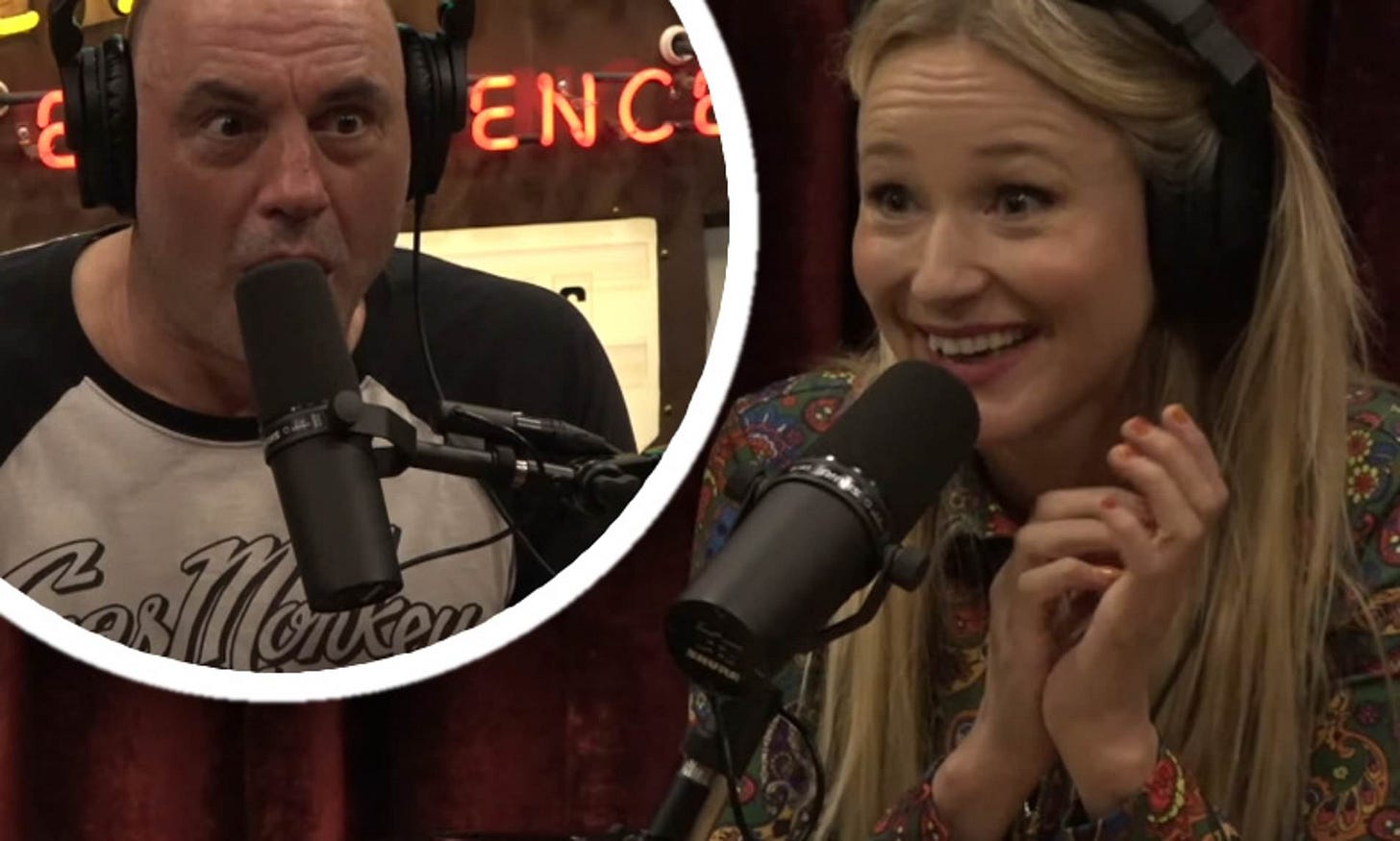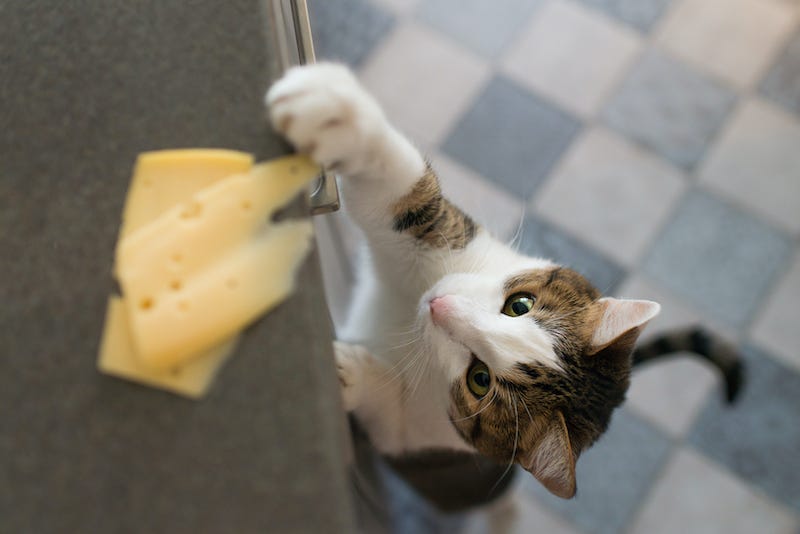Jewel's grandma cooked a cat with cheese sauce. What that says about the naturalistic fallacy.
Being in touch with nature doesn't necessarily help us save it
The Grammy-winning singer Jewel recently appeared on The Joe Rogan Experience. I was excited to listen to the podcast, partly because I liked Jewel’s music when I was a teenager. (Though music like hers also caused an internal identity crisis that led me to swear off all music for 5 or so years. But that’s for another blog.)
But also partly because Jewel was in the news recently for her harsh but ultimately prescient email to Tony Hsieh, founder of the footwear company Zappos. Tony, you see, is one of the few Chinese people who was positively portrayed by the media — or known to the public at all. When he died recently in a strange, drug-induced, case of self-arson, with hundreds of candles and nitrous oxide canisters surrounding him, it was a blow to the entire Chinese community. But it was a particular blow to my family, which has a peripheral relationship to his. (Tony’s dad went to the same university as mine, and they were part of the same social circle.)
Jewel, a friend of Tony’s, had been invited to perform at an event. But when she arrived and noticed the chaos around him, she abruptly left before performing and sent him a letter explaining why.
"I am going to be blunt," she wrote in the letter. "I need to tell you that I don’t think you are well and in your right mind. I think you are taking too many drugs that cause you to disassociate."
“People you are surrounding yourself with are either ignorant or willing to be complicit in you killing yourself."
Jewel was right. And within weeks, Tony was in fact dead. Her words seemed prescient and wise.
So I went into the podcast with a positive attitude. I wanted to like Jewel. And, at first, I did. Telling self deprecating jokes and quoting Plato’s Symposium, Jewel shows a depth and sensitivity that’s not common in celebrities, especially celebrity musicians. Then she told a story that forced me to turn the podcast off. (It begins at 18:19 at this link, if you want to hear the full story.)
You see, Jewel grew up in the wilderness of Alaska on a homestead. Her grandparents had moved there a generation ago, fleeing Europe and concerned about the collapse of human civilization. And they built their home from the ground up. They used a stream instead of modern plumbing with running water. They had no electric power or tractors; they built things with wooden wheels. And they hunted and killed their own food.
The last fact, as you might imagine, was already souring me on the story. Human hunting has led to the mass extermination of species across the planet. And more importantly, it inflicts suffering and violence on another being, based on our power over them. But then Jewel told the story that shocked me — and even her podcast host Joe Rogan, a bow-hunting martial artist who is not typically one to be shaken by violence against animals.
Cheese was in short supply on the homestead. But occasionally, the family would go to town and get some. And on one occasion, the family had procured a big block of cheese and placed it in a back room in an icebox. They were waiting to experience it together, in a large family of 8 children, later in the day.
But then the cheese went missing. Jewel’s grandma saw the door was open, and looked in the icebox. There was nothing there. She looked around the room and saw a happy-looking cat, fat with cheese, with crumbs everywhere. “She was probably pissed at the cat,” Jewel said. And we can all relate here. (My cats have stolen my food on more occasions than I can count.) What we probably can’t relate to is what she did next:
Chop the cat’s head off, pull the cheese out of the cat’s stomach, and cook the cat with cheese sauce from her own stomach.
The entire family ate cat with cheese sauce that night for dinner.
Joe Rogan gasps in horror. And Jewel tries to talk him down by pointing to a few things about the killing of the cat. The first was necessity. “There wasn’t a lot of food out there,” Jewel said. “They’d have one chicken for ten people.”
But this explanation seems odd. She mentions, also, that her grandfather was a senator in Alaska, often traveling for politics. If he had time to travel across the state for politics, surely he had time to find food of a non-feline nature. Moreover, the cat was killed for stealing a block of cheese, a luxury item that’s not generally seen as a staple food for hungry families. The necessity argument, as in so many other contexts, seems completely misapplied.
The second argument Jewel offers is that the killing of the cat was part of a natural relationship. “You can only value what you have a real relationship with,” Jewel says. “We valued our food. It was sacred. We valued nature.” Yes, the story sounds grim and bloody. But at least Jewel’s family knew exactly where their food was coming from. The problem with the modern food system, under this theory, is our disconnection with how it is made. The slaughter of even a cat, under this view, is acceptable if there was a relationship. After all, isn’t that how nature works? The lion does not show love for the gazelle.
But then Jewel says something that destroys the illusion. “Relationships change you. If you have a relationship with a wife, you’re gonna evolve.” Of course she’s right that relationships, including our relationship with animals, can change us. But if the right comparison for our relationship with animals is the relationship between husband and wife, how we can possibly justify violence. There is a term for that: domestic violence. And, not so long ago, domestic violence was justified on the grounds that it was “natural” for a man to have dominion over his wife and children.
For example, the law provided a defense to homicide when a man murdered his wife for having an affair. It was “natural” for a man to react in this way, so who were we to try to stop him? Even more recently, the law provided a defense — the infamous “gay panic defense” — for a man who murdered another man who made a sexual pass at him. A man’s “natural” sense of sexual propriety would be so offended by the attempt at an “unnatural” sexual act that he would not be able to stop himself from murdering.
Jewel’s defense of cat slaughter as “natural,” then, is part of a history of defending violence as natural, when a more powerful class wants to justify its violence against someone with less power. And it is wrong not just because nature, as the above examples show, is subject to definition by people in power. (Today, we’ve realized that homosexuality is actually quite common in nature, and not just for human beings, and that husbands don’t have a natural homicidal instinct against their cheating wives.)
It’s wrong, more fundamentally, because what’s “natural” does not necessarily show us what’s right. I don’t doubt, for example, that anger towards those who take our food is a natural part of the human condition. Have you ever brought home a cherished treat, say a delicious slice of pie from your vegan bakery, only to have a roommate or family member take it away? It can be a terrible experience! (In one house dispute many years ago, a roommate stated that food stealing of this sort made her “unsafe.” I don’t doubt that this reaction was an authentic one.)
Or even look at how other social animals behave. There’s a daily ritual at my house, where the most timid dog I’ve ever met, Oliver, postures and growls at my cat, who though less than half of Oliver’s size still has the guts to try to steal his food. Anger or even violence towards those who threaten our key resources, then, seems to be a part of the animal condition.
But sometimes those natural instincts are wrong. Especially as human beings, we live in a world of abundance. If my roommate eats my pie, it’s not going to be that hard for me to get another slice. But more importantly, as we evolve and become wiser, and deploy our brain’s uniquely massive frontal lobes to imagine the experience of the people around us, we sometimes temper or even reverse those natural feelings. We might recognize that our roommate has been having a hard time. That they’re notoriously forgetful about who bought what food. Or even just that they enjoy pie way more than we do. Whatever the result, the process of reflection, and resisting the natural impulse that might first overcome us, is an important one for making the world a kinder place.
Jewel’s story is a particularly grim demonstration of this. The family didn’t have to kill the cat; they had enough food. But more importantly, the family didn’t have to kill their own ability to see the world through the cat’s eyes. If they had done so, maybe they would have lost a block of cheese. But gained a furry friend, and a more nuanced and compassionate understanding of the world around them.




I love the way you see the world Wayne. I also feel sick for that cat and all animals who are victims of human greed and malice.
I’ll never understand people. Nor will I ever listen to Jewel again. To be honest I liked her 25 years ago but she has never evolved musically and apparently not as a decent human either.